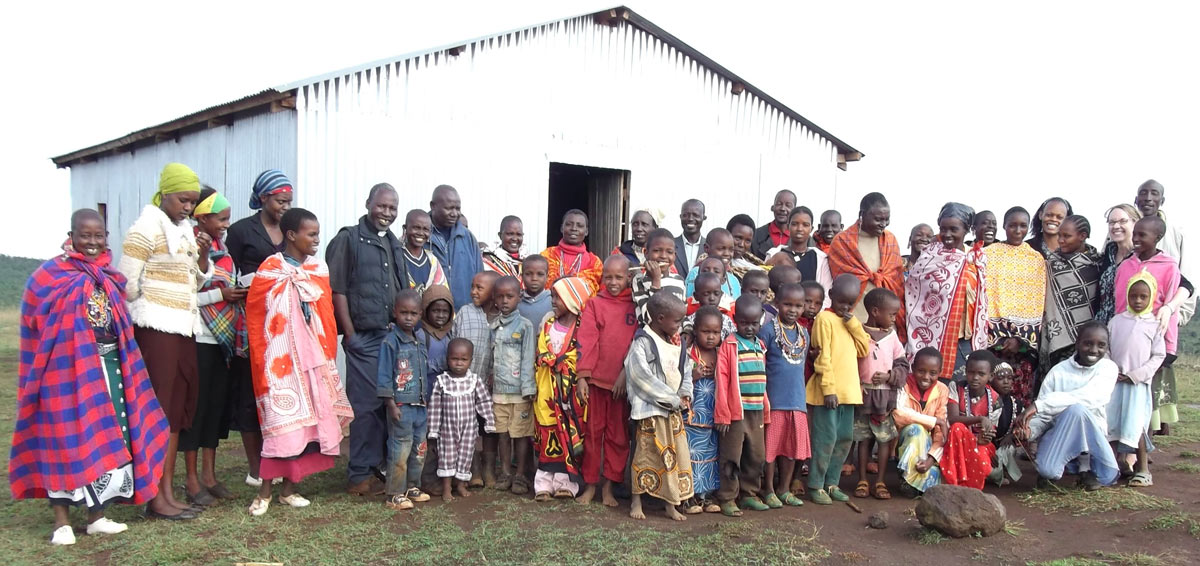“I’m not done until I’m done”
Anti-FGM campaigner Ann-Marie Wilson shares her hard-won wisdom on how to keep going in mission
#JesusNeverGivesUp
Photo: Indefatigable anti-FGM activist Ann-Marie Wilson and mission partner
An incurable cancer diagnosis. Living with chronic pain. Plus pursuing an immense, often-misunderstood, calling. If anyone could be excused for giving up, it might be CMS mission partner and anti-FGM activist Ann-Marie Wilson. We asked her a basic question: how do you keep going? Following is distilled practical wisdom from a woman who refuses to give up.
Look to Jesus
I think Jesus doesn’t give up, because he was sent by the Father for a purpose, a job to do. And I too was sent with a purpose and I haven’t given up – because the job’s not done. Which doesn’t mean it’s not difficult. But I wouldn’t dream of giving up. I’m not done until I’m done.
Remember your purpose
I’m helped by the fact that my calling began with hearing the audible voice of God. I know it’s not that way for everybody.
I was volunteering in West Darfur when I met a girl, Fatima, age 11. She’d undergone FGM (female genital mutilation) at age five and at age 10 she was raped and became pregnant. We helped her give birth safely.
Realising Fatima was one of thousands of FGM victims impacted me greatly. I was due to return to the UK and I cried out to God: “Who’s going to look after these girls when I’ve gone?”
And he said: “You are.”
“I wasn’t called to do everything; I was called to do my part.”
I figured God hadn’t talked to his HR officer. I wasn’t nearly qualified for this. But I’d heard his voice and I didn’t want to be like Jonah – if you run away from God you never really escape. I spoke with people from my church and others, recognising that I was a white woman wanting to work in the majority world and I needed to discern what part I was called to play in eradicating FGM. I had to be humble and re-train completely.

I wasn’t called to do everything; I was called to do my part. I’ve kept this in mind as I’ve merged the charity I founded 10+ years ago with another charity, and step back from being chief executive for a more advisory role. By grace, I do so with love.
Be truthful about struggles
Of course, I get tired. Or overwhelmed. I can get frustrated at the systems that keep women oppressed. It can be tempting to give up, but never on God. Because he’s called me and he’s with me in all my difficulties. And he helps me learn from them.
Not giving up doesn’t mean not resting
I make space for rest days weekly. Sometimes people say there’s too much work and no time to rest. But the work you do when you’re exhausted is slow. I say this as a recovering workaholic – rest should be part of our discipleship. God rested and if we trust God we will take rest and Sabbath seriously.
Remember blessings
When I started, this was really pioneering work. Back then, churches didn’t know what the initials FGM meant, never mind being prepared to hear me speak about such a graphic subject. So I’m grateful for the early successes and blessings – which weren’t always the same things.
You can’t go it alone
To resist giving up, we need people to encourage and challenge us. We know different people have different skills to bring to the table. And not just people in the present, but I also draw inspiration and sustenance from missionary pioneers who have gone before me. During the pandemic, due to my health I shielded for 18 months and was pretty much on my own. So I know the weariness isolation brings.
Glimpse grace
When I think of things I find difficult to accept, like my health or my singleness, I have to really press in to God. I’ve had to give up the hope of having children, which I would have liked. I do have seven godchildren, which gives me joy. And God has given me the opportunity to train and serve as a midwife in Pakistan and Nigeria. I’ve helped 10 women give birth. God brings fulfillment in amazing ways.
Recently, I had a hip replacement that went horribly wrong and I now have paralysis in my leg and constant pain. It’s something I have to put up with, but it doesn’t make me want to stop. I have to make sure people understand that I’m not Superwoman; I need more help than I used to. It’s tough to be vulnerable but probably a good thing.
Stay curious
When I was diagnosed with cancer in 2015, I saw an oncology psychologist. I told her I’d made a bucket list of 96 things I still wanted to do in my lifetime. She said most people with cancer wait until it’s too late to make this kind of list. After my first chemotherapy session, I did my first bucket list activity: I went to a ballroom dancing lesson and got spun around by the instructor across the wooden floor.
I’ve now done all 96 things. To commemorate my 60th birthday I’ve come up with 60 more things, including some exotic travel I couldn’t do during the pandemic. I don’t want any part of me to feel like it’s time to check out – I feel proud of the things I’ve been able to do and that I have followed my calling and, come what may, that feels like a special place to be.